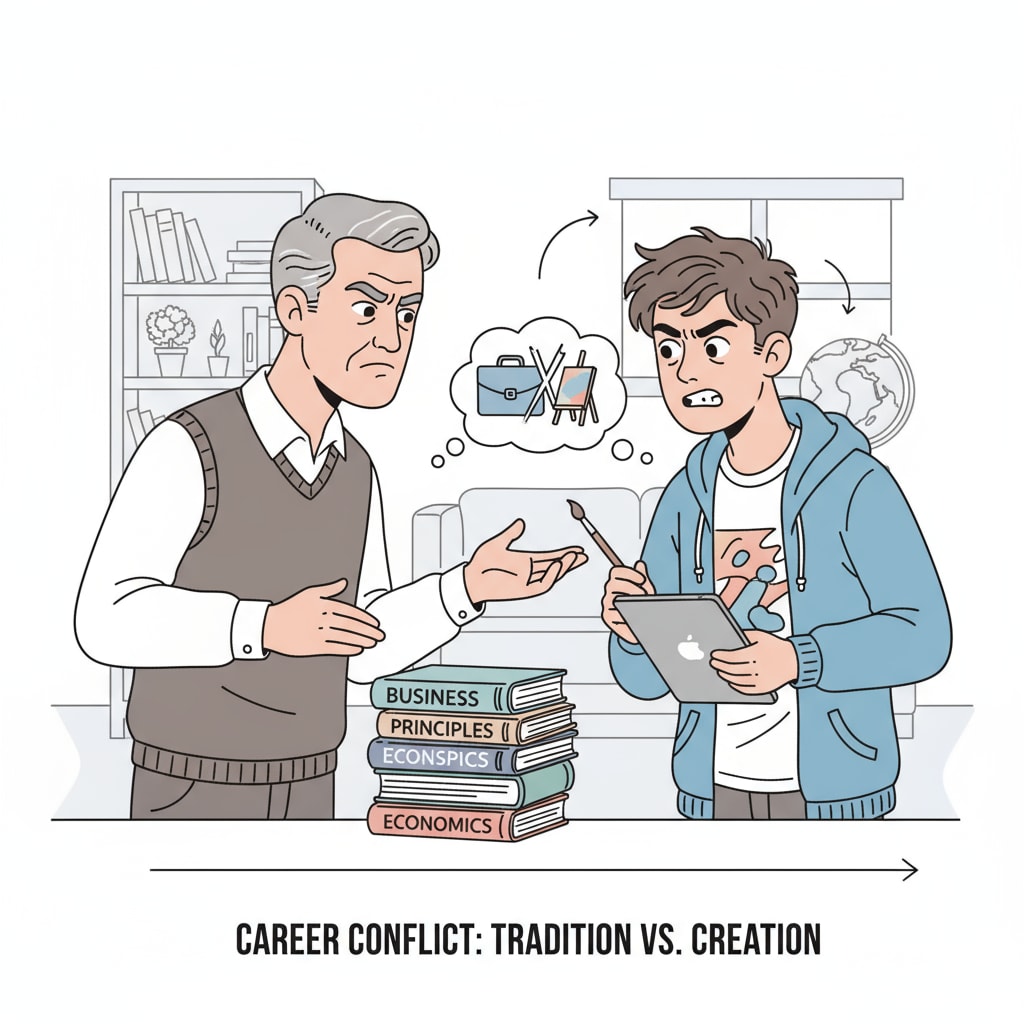Career choices, father-son conflicts, and military careers often intersect in the lives of teenagers, creating complex and challenging situations. In the K12 education phase, adolescents start to contemplate their future paths, but parental expectations can sometimes throw a wrench in their plans. Take, for example, the case of a 17-year-old immigrant teen who found himself at odds with his father over his career aspirations.

The Clash of Wills
This young man had a passion for the arts. He dreamed of attending a prestigious art school and pursuing a career in graphic design. However, his father, a military veteran, had different ideas. The father firmly believed that a military career was the best path for his son, citing the discipline, structure, and opportunities for growth it offered. This difference in vision led to intense father-son conflicts. The teen felt that his autonomy was being stripped away, while the father was convinced he was guiding his son towards a more secure future.

The Impact of Family Intervention
Family intervention in career choices can have both positive and negative consequences. On one hand, parents’ experience and knowledge can provide valuable insights. For instance, a parent may be aware of emerging industries and steer their child towards fields with better job prospects. On the other hand, when parental expectations override a teen’s interests, it can lead to a lack of motivation and engagement. In the case of this immigrant teen, the constant pressure from his father made him feel stressed and unenthusiastic about his future. As a result, his academic performance began to suffer.
According to the American Psychological Association’s research on youth development, excessive parental control in career decisions can have long-term psychological impacts on teenagers. It may cause them to develop low self-esteem or a sense of resentment towards their parents.
Finding a Balance
To resolve such conflicts, healthy parent-child communication is essential. Parents should take the time to listen to their teenagers’ dreams and aspirations. They can then provide guidance based on their experience, while still respecting their child’s autonomy. In the case of the immigrant teen and his father, they could start by having an open and honest conversation. The father could learn more about his son’s love for art and understand why it was so important to him. At the same time, the son could try to see his father’s perspective and the benefits a military career might offer.
Another important aspect is for teenagers to do their own research. They should explore different career options, talk to professionals in the fields they are interested in, and gain a better understanding of the opportunities and challenges ahead. This way, they can make more informed decisions and present a well-reasoned argument to their parents. Career One Stop is a great resource that offers a wealth of information on various careers.
Readability guidance: In this article, we’ve explored the complex issues surrounding career choices, father-son conflicts, and military careers. By understanding the impact of family intervention and seeking a balance through communication and self-exploration, teenagers and parents can work together to create a more positive future. Using short paragraphs and clear headings, we’ve presented the information in an accessible way. Transition words like “however,” “on the other hand,” and “at the same time” have been used to make the flow of the article smooth.


